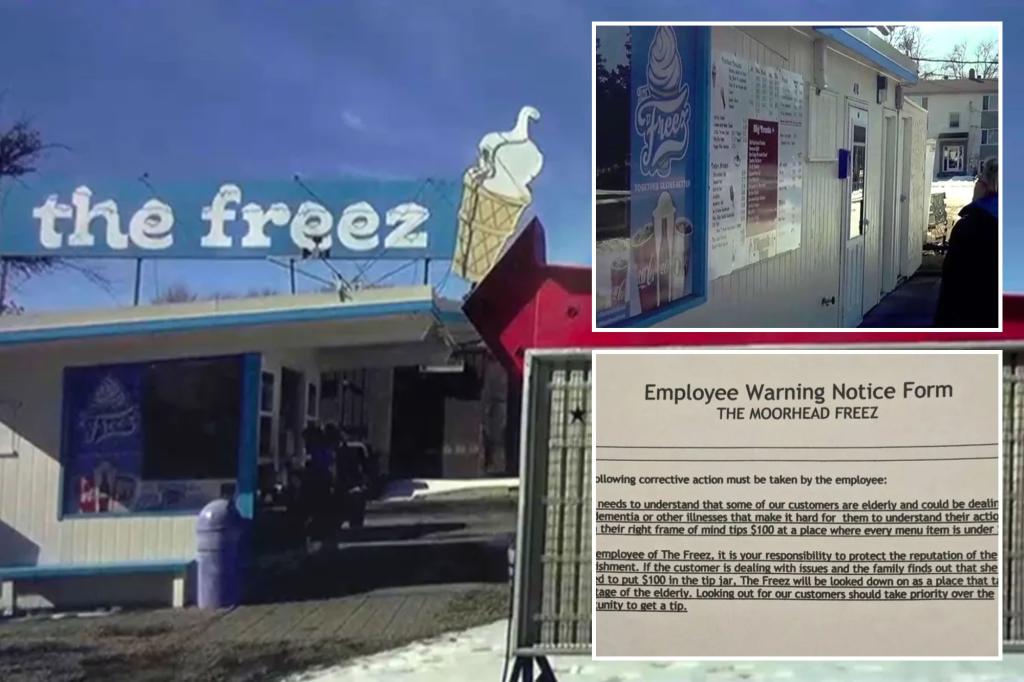A Minnesota ice cream shop worker was allegedly fired for accepting a $100 tip from an elderly customer with dementia. Seth and Lisa Swenson claimed their daughter Emily, an employee at The Freez in Moorhead, was let go after an elderly customer tried to leave a large tip, which Emily initially refused. The incident led to management accusing Emily of “taking” the large tip, which they believed could harm the shop’s reputation if word got out that such a large gratuity was accepted.
Two days after the tipping incident, Emily was issued an “Employee Warning Notice Form,” stating that she needed to be more aware that some customers may have dementia or other illnesses. The notice also claimed that an elderly person tipping $100 at a place with inexpensive menu items was implausible and could damage the shop’s reputation. Despite the lack of a policy regarding tip amounts, Emily was fired the next day, with the shop explaining that protecting the establishment’s reputation and looking out for customers took priority over accepting large tips.
In a post on social media, The Freez disputed the Swenson’s claims that Emily was fired due to the tip and asserted that more information was involved in her termination. The shop also criticized the Swenson’s for speaking on behalf of their adult daughter and stated that their values and expectations align with those of the community and customers. While Emily does not blame the customer for her firing, she appreciates the kindness of the customer who left the large tip and does not hold her responsible for what happened.
In a separate incident, a Michigan cafe server was fired after splitting a $10,000 tip with her co-workers. Linsey Huff, also known as Boyd, received the massive gratuity from a customer at the Mason Jar Cafe in honor of his late friend. The customer requested that the tip be split among the service staff, resulting in eight servers receiving approximately $1,200 each. However, the back-of-house staff became upset that they did not receive a share of the tip, leading to drama and issues within the staff.
These incidents highlight the complexities surrounding large gratuities in service industry settings. Employees may face consequences for accepting or distributing substantial tips, as seen in the cases of Emily and Linsey Huff. Employers may have policies and concerns about the impacts on their reputation and community perception when accepting large tips. The involvement of social media and public discourse can further complicate these situations, as seen in the backlash faced by The Freez and the Mason Jar Cafe. Ultimately, navigating the handling of large tips in the workplace requires careful consideration of employee policies, customer interactions, and the potential impact on the business and staff dynamics.













